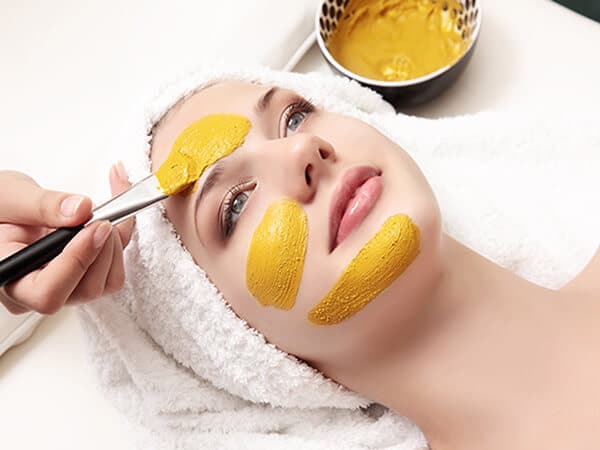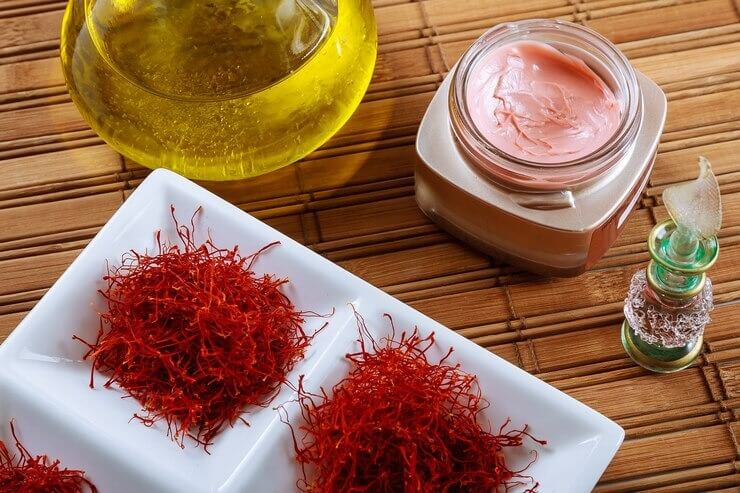Blog
Drinking Milk With Saffron For Skin Whitening?

Historical Background
Saffron has been used for hundreds of years to make beauty products. Records show that old people like the Egyptians, Greeks, and Romans used it. The Crocus sativus flower was used to make saffron, which was valued for its bright color and pleasant smell. It was used a lot in beauty routines, like perfumes and skin treatments.
In the Indian, Middle Eastern, and Mediterranean countries, saffron has been used in traditional skin care methods because it is thought to make the skin look brighter and better. Milk has also been used for skin care for a long time. For example, Cleopatra is said to have bathed in milk to keep her skin soft and moisturized.
How to Understand Saffron?
A spice called saffron comes from the stigma of the Crocus sativus flower. It is one of the most expensive spices by weight, and people love the way it smells, tastes, and looks. Saffron has been used in traditional medicine systems like Ayurveda and traditional Chinese medicine for its possible health effects, in addition to its uses in cooking.
Compounds in saffron, like crocin, crocetin, and safranal, are thought to have anti-inflammatory and protective qualities. Saffron may be good for your skin because it contains these chemicals, which may help even out your skin tone and make your face look better.
The Science Behind How to Whiten Your Skin
Before we talk about how drinking milk with saffron can whiten your skin, it’s important to understand how skin tone is affected by biology. A person’s skin color is mostly decided by how much melanin they have. Melanocytes in the skin make melanin. By taking in and getting rid of ultraviolet (UV) light, melanin is a key part of protecting the skin from the harmful effects of UV radiation.
Different things, like genes, sun exposure, changes in hormones, and skin damage, can affect how much melanin is made and where it is distributed, which can cause changes in skin tone. To get a lighter appearance, skin-whitening methods usually work on the production or spread of melanin.
Myth That Saffron in Milk Will Whiten Your Skin
The idea that drinking milk with turmeric can make your skin whiter comes from old beliefs and anecdotes, not from science study. Supporters of this method say that the antioxidants in saffron and the nutrients in milk can help lighten the skin and make it look better.
There isn’t a lot of solid proof to back up these claims, though. Crocin and crocetin are two antioxidant-rich compounds found in saffron. However, it is not well known whether or not eating these compounds will whiten your skin. In the same way, milk has nutrients like vitamins A, D, and E, as well as calcium and proteins, but there isn’t much scientific proof that drinking milk alone can make your skin lighter.
Possible Skin Health Benefits of Saffron and Milk:
It’s not clear if drinking milk with saffron will whiten your skin, but both saffron and milk may be good for your skin if you use them on your skin or include them in a healthy skincare practice.
- Antioxidant qualities: Compounds in saffron have antioxidant qualities that may help protect the skin from free radicals and the damage they cause. Antioxidants can help keep your skin healthy and stop it from aging too quickly.
- Keeping the skin hydrated and smooth: Milk has a lot of proteins, fats, and lactic acid, all of which can help keep the skin hydrated and smooth. Putting milk on your skin or using skin care items made with milk may help keep the wetness balance and improve the appearance of your skin.
- Skin Conditions That Reduce Inflammation: Both saffron and milk can help calm skin conditions like acne, eczema, and rosacea that are red and itchy. Putting saffron or milk on the skin may help reduce redness and swelling.
- Support for Nutrients: Milk has important nutrients for skin health, like vitamins A, D, and E, as well as calcium and proteins. These nutrients help the face heal, make collagen, and work properly generally.
Things to think about and possible risks:
Most people can drink milk with saffron without getting sick as long as they don’t do it too often. However, there are some things you should know about the possible risks:
- Allergic responses: Some people may be allergic to saffron or lactose, which could cause bad responses like rashes, stomach pain, or breathing problems.
- Sensitivity: Saffron is a strong spice, and some people may have skin irritations or allergic responses when they eat it or put it on their skin. Before putting saffron or milk-based items on your skin, you must do a patch test.
- Quality and Purity: The quality and purity of saffron affect how well it works for skin care. Make sure you only buy saffron from a trustworthy source to avoid getting it mixed up with other things.
- Sun Protection: Using saffron or milk on your skin may be good for it in some ways, but it’s still important to protect your skin from the sun. To protect the face from UV damage, it’s important to use sunscreen every day and follow sun safety tips.
Conclusion
The idea that drinking milk with saffron can make your skin whiter may have cultural and historical roots, but there isn’t much scientific evidence to back up its claims. Saffron and milk may be good for your skin if you put them on your skin or use them as part of a healthy skincare practice, but it’s not clear if they can lighten your skin tone.
People who want to improve the look of their skin or deal with specific skin problems should follow skincare routines that have been shown to work. These include regularly cleaning, hydrating, protecting your skin from the sun, and using skincare products that have been shown to work. Talking to a doctor or other skin care professional can help you come up with a unique skin care routine that fits your needs and skin type.
In the end, getting healthy, glowing skin requires a whole-person approach that includes things like food, staying hydrated, stress management, and skin care habits. Milk and turmeric may help keep your skin healthy, but they are only one part of the story when it comes to having beautiful, healthy skin.





